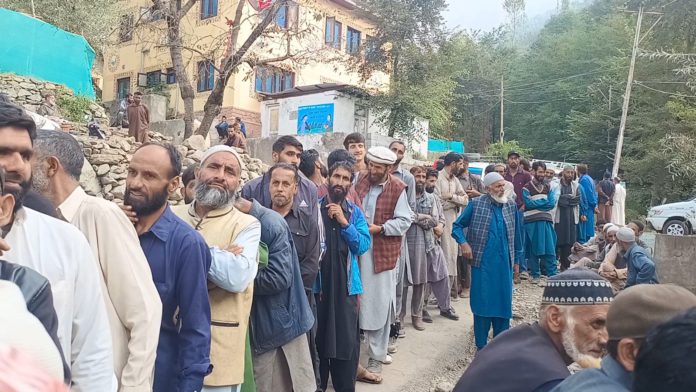Voting for the second phase of the Jammu and Kashmir assembly polls commenced Wednesday morning, with many voters expressing a desire for significant change and an end to arbitrary administrative decisions affecting their daily lives. This election marks a shift, as first-time voters are now actively participating, signaling a move away from the longstanding tradition of boycotting elections in Kashmir.
As of the early hours, around 9% voter turnout was recorded across all six districts, with the capital Srinagar seeing about 5%. Residents in areas like Faqeer Gujri voiced their determination to vote to end a decade of perceived lack of representation and to address issues like high electricity tariffs imposed by the current administration.
Younger voters shared their hopes for increased employment opportunities and a leader who can represent their interests in the assembly. Despite the new assembly holding less power than its predecessor, voters see this election as an opportunity to reject the ruling BJP and its policies that have dominated the region for the past five years.
Women also turned out in significant numbers, with one 53-year-old voter emphasizing that they are voting to ease their families’ struggles, citing issues like high power bills and lack of jobs. The houseboat community in Dal Lake also participated, traveling to polling stations in hand-rowed boats.
Voting began at 7 am amid tight security, with officials reporting smooth proceedings after the first two hours. A total of 239 candidates, including former chief minister Omar Abdullah, are contesting across various constituencies. The Election Commission established 3,502 polling stations, ensuring a secure environment for the voters.
The assembly constituencies involved in this phase include those in Srinagar, Budgam, Ganderbal, and several in the Jammu division. The overall atmosphere reflects a community eager for change and ready to make their voices heard through the ballot.




